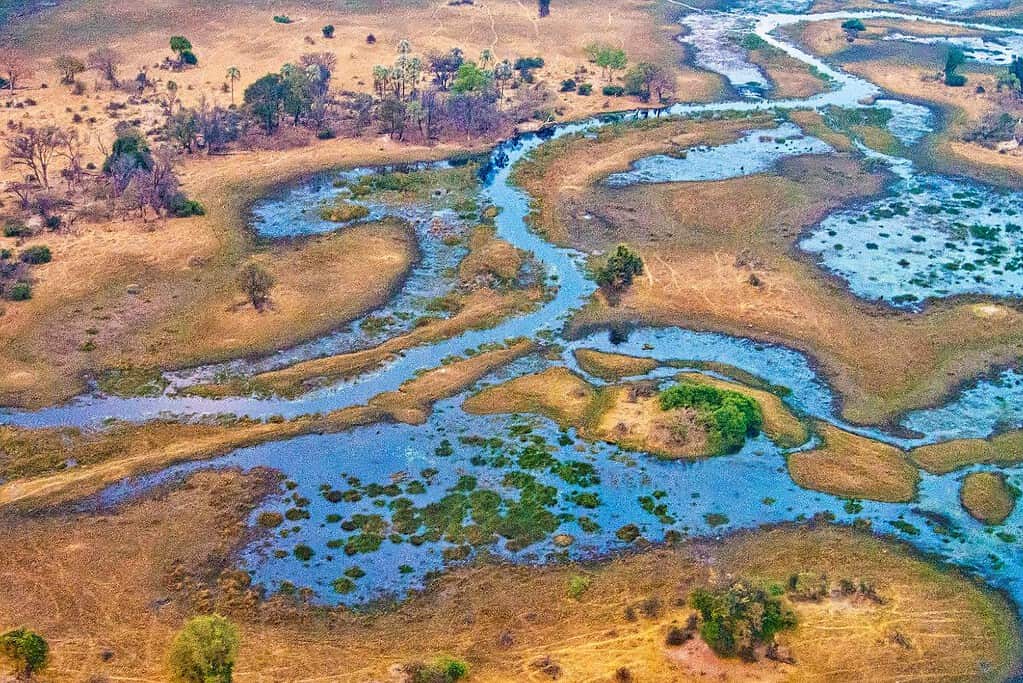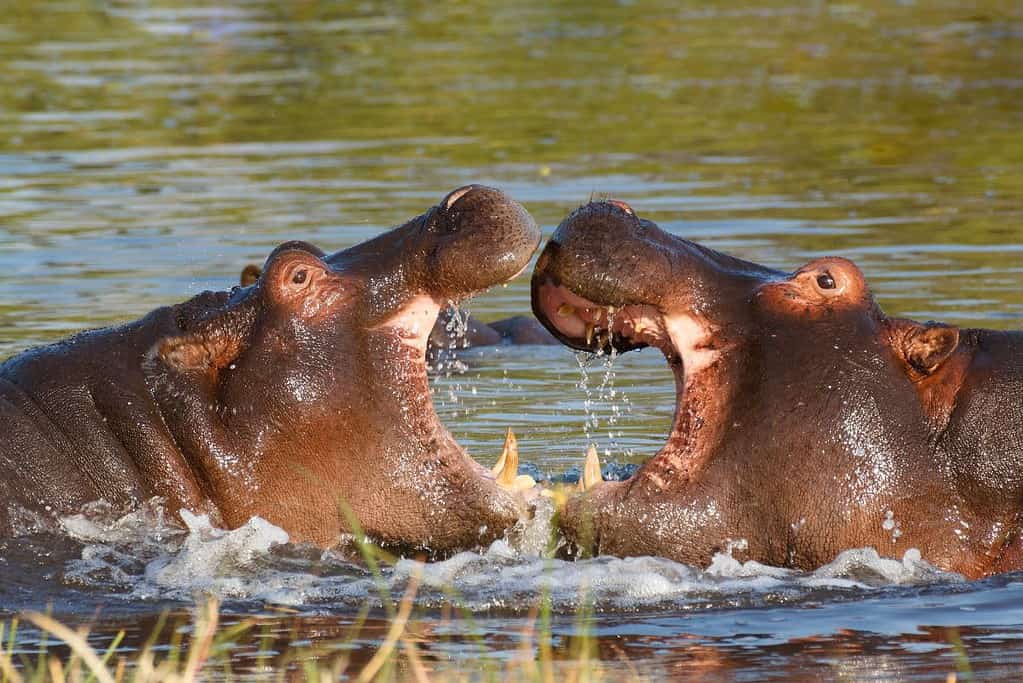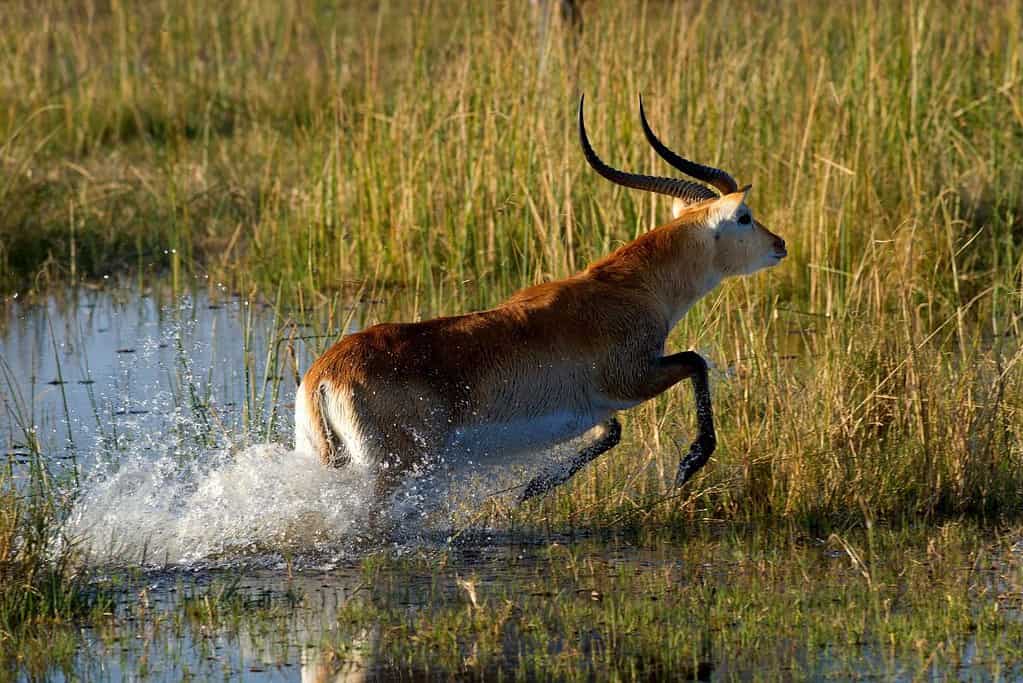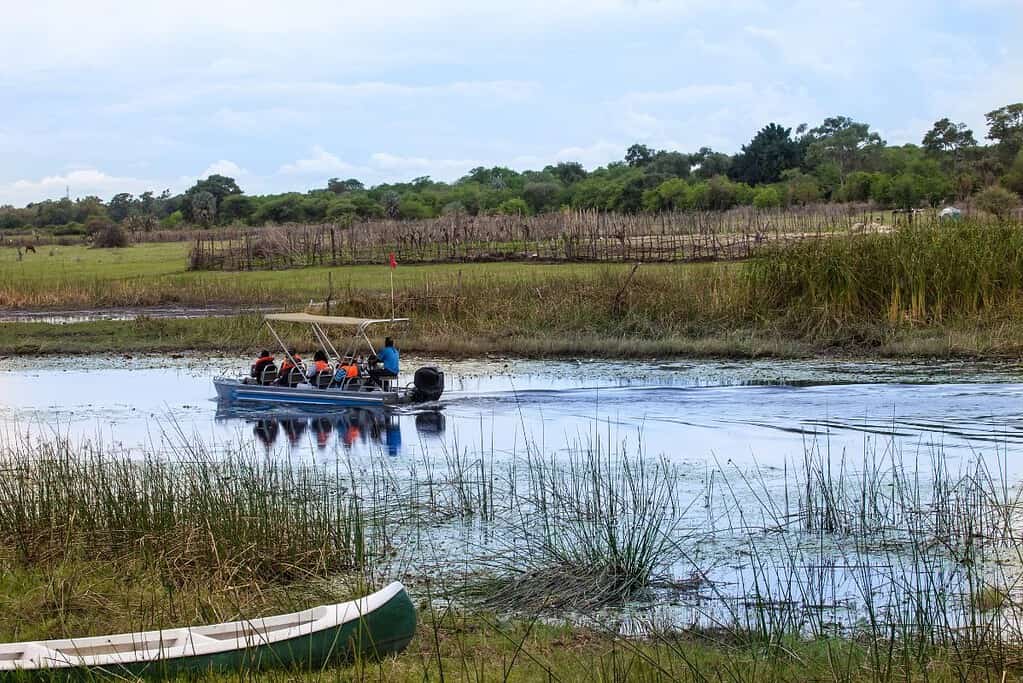Botswana, a haven of unparalleled beauty in southern Africa, hosts one of the world’s most stunning natural wonders—the Okavango Delta. This expansive inland delta is not only a vital lifeline for an array of wildlife but also a mesmerizing destination for nature lovers and adventure seekers from around the globe. In this article, we delve deep into the heart of the Okavango Delta, exploring its unique ecosystem, diverse wildlife, and the extraordinary experiences it offers.
Table of Contents
The Okavango Delta: A Geographic Marvel
The Okavango Delta is a phenomenon that stands out in the geography books. Unlike most river deltas which lead to an ocean or sea, it is an inland delta that spills its waters onto the open land of northern Botswana. This results in a complex wetland system within the Kalahari Basin. The waters of the Okavango River originate from the highlands of Angola, traveling southeastward, and fanning out to form the delta.

This geographic peculiarity creates an ever-changing landscape that varies with the seasonal floods. The annual flooding, which begins around June, originates from the summer rains in the Angolan highlands, reaching the delta approximately six months later. These floods expand the delta’s waterways, creating a lush animal habitat amid the arid region of the Kalahari Desert.
Wildlife and Biodiversity
The delta’s unique environment supports a vast array of animals and plants, making it one of the most biodiverse places in Africa. It is home to significant populations of some of Africa’s most endangered species, including the cheetah, white rhinoceros, and African wild dog. Additionally, the delta is renowned for its large herds of elephants and buffaloes, particularly during the dry season when the delta becomes a critical source of water.

Birdwatchers flock to the Okavango for its exceptional avian variety. With over 400 bird species recorded, the delta is a paradise for ornithologists. Iconic species such as the African fish eagle, Pel’s fishing owl, and the jewel-like malachite kingfisher can be spotted here, often seen perched along the waterways.
The Human Element: Conservation and Community
Conservation efforts in the Okavango Delta are critically intertwined with the local communities. The delta is managed through a combination of government initiatives and community-driven projects that focus on sustainable tourism. Eco-tourism has been a boon for local employment and education, providing significant incentives for wildlife conservation.
Community-based tourism initiatives ensure that the benefits of tourism are shared with the local communities. These initiatives also play a crucial role in educating visitors about the importance of conservation and the sustainable use of natural resources.
Experiencing the Delta: Activities and Adventures
The Okavango Delta offers a plethora of activities for every type of adventurer. Traditional mokoro (dugout canoe) trips provide an intimate way to navigate the narrow channels and floodplains of the delta. These canoes are traditionally made from the trunks of large trees but are increasingly being replaced by eco-friendly fiberglass models to preserve the forest.

For those looking for a more expansive view, scenic helicopter flights offer a bird’s eye view of the winding waterways and the large animal herds. Safari drives and guided nature walks are also popular, offering opportunities to encounter wildlife up close, including lions, leopards, and hyenas.
Best Time to Visit
Timing your visit is crucial to get the most out of your Okavango experience. The best time to visit is during the dry season, from July to October, when the delta floods are at their peak. This period offers the best game-viewing opportunities, as animals congregate around the water sources. However, the beauty of the delta can be appreciated year-round, with each season offering a different perspective and experience.
Sustainable Travel Tips
Visiting the Okavango Delta is a privilege, and it comes with a responsibility to minimize our environmental impact. Travelers are encouraged to use responsible tour operators who support local conservation efforts. Reducing plastic waste, staying on designated paths during walks and drives, and respecting wildlife viewing guidelines are essential practices to help preserve this fragile ecosystem.

Conclusion
The Okavango Delta is not just a travel destination; it’s a profound reminder of nature’s complexity and beauty. Its conservation is a testament to the dedication of the Botswanan government and local communities who work tirelessly to preserve this irreplaceable natural heritage. A journey to the Okavango is an experience of a lifetime, offering not only spectacular sights and thrilling adventures but also a deeper appreciation for the natural world and the importance of conserving it for future generations.
As the sun sets over the tranquil waters of the delta, casting a golden glow over the vast landscape, one can’t help but feel a deep connection to this extraordinary place. The Okavango Delta truly is a natural wonder of Botswana, deserving of its place as one of the most cherished and revered natural habitats on the planet.
Read the Botswana article here.
